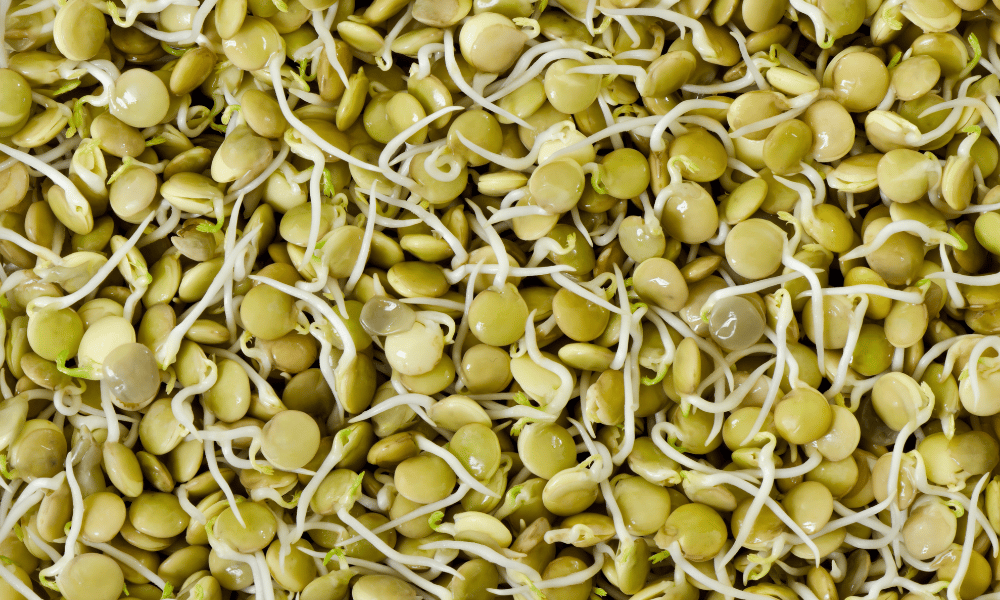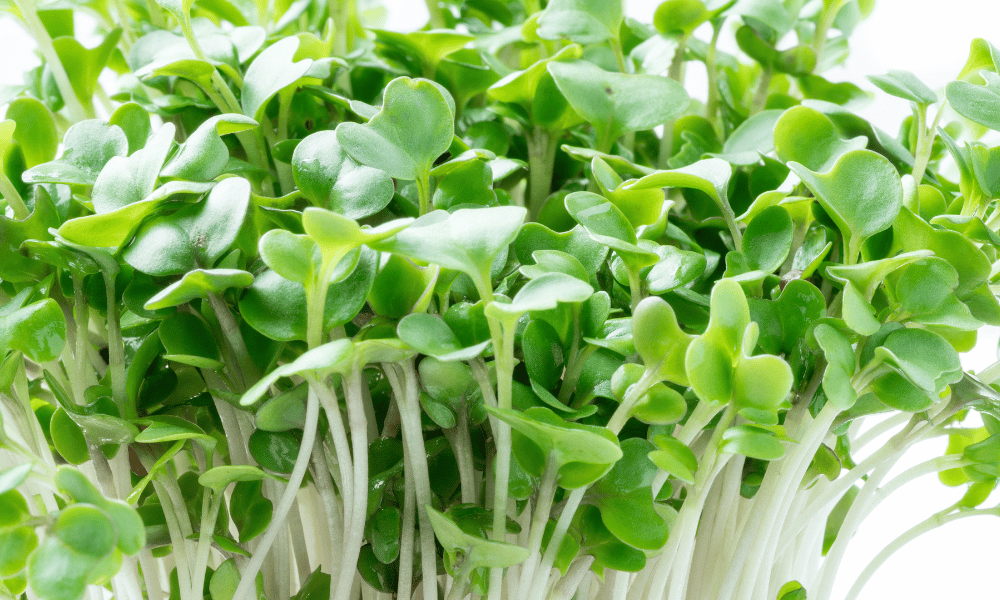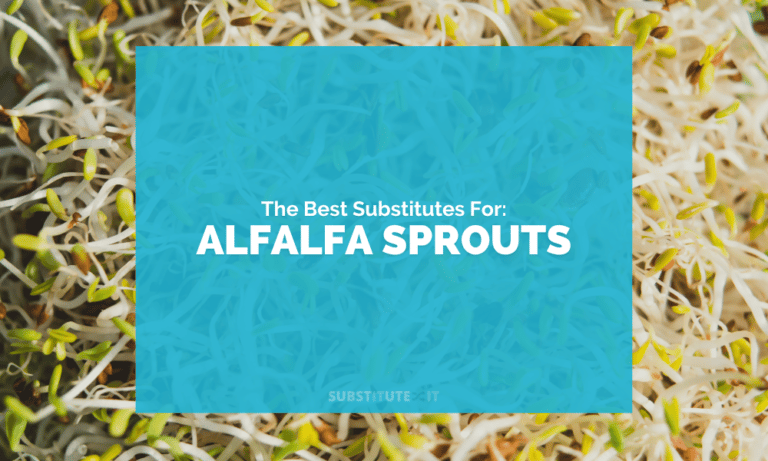Alfalfa sprouts are simply the younger version of the nutrient-rich herb alfalfa, sprouted from the alfalfa seed.
As an ingredient, alfalfa sprouts are not a common go-to option. Instead, they are much more popular amongst farmers and animal owners as cheap, healthy food for animals.
However, alfalfa sprouts have plenty of uses in a range of dishes. Most often, they are used as a herb in baked goods and as a unique addition to a salad or sandwich.
Even though they are an easy ingredient to grow at home, alfalfa sprouts can be difficult to find outside of health-specialist stores and can be quite costly. So, while you wait for your own sprouts to grow, why not try out a few alternatives?
Our 4 Substitutes for Alfalfa Sprouts
Compared to other sprout types, alfalfa sprouts have a tender taste that, while reminiscent of alfalfa, is not as impactful. The taste also has a slight nutty quality, which is more prominent in the alfalfa sprout roots.
Like their flavour, the texture of alfalfa sprouts tends to be on the softer side, but they still have that satisfying crunch. If alfalfa sprouts have been harvested early, then they are a little crunchier and tougher.
Here are our top 4 substituted for alfalfa sprouts:
1) Mung Bean Sprouts
Mung bean sprouts are the significantly more popular and commonly available type of sprout on the market. You will easily find them in your local supermarket at an affordable price for a large portion of the year.
Most often found in Asian dishes, mung bean sprouts grow with a much thicker stem than that of alfalfa sprouts. As such, they are chewier than alfalfa sprouts but have a better crunch.
The biggest downside to using mung bean sprouts over alfalfa sprouts is that they are considerably less flavourful. Mung bean sprouts are full of water with a very faint earthiness but not much else.
When to Use Mung Bean Sprouts
Do not use mung bean sprouts if you want to add extra flavour to your dish. Instead, only use them when you want to achieve a crunchy texture or need to bulk your meal without altering the balanced flavours.

2) Lentil Sprouts
Lentil sprouts are lentils that have been allowed to sprout after being soaked and left to germinate in the sun. The whole process only takes up to 6 days until the sprouts are ready to eat, but, like alfalfa sprouts, lentil sprouts can be hard to find in supermarkets.
If you can find lentil sprouts or want to have a go at growing your own, they are a versatile substitute for alfalfa sprouts.
Though their stems tend to be shorter than alfalfa sprout stems, they are just as thin. This gives them a very similar texture when used raw. Or you can briefly blanch lentil sprouts to achieve a softer texture which will then make them easier to use in stir-frys or baked goods.
Reduce the Spice
Unlike alfalfa sprouts, lentil sprouts have a notable sharp taste. When raw, this spice is difficult to mellow out, but once the sprouts have been blanched, the impact of the spice is reduced.

3) Radish Sprouts
Much like a typical radish, radish sprouts have a peppery taste that, while refreshing, is very different to the taste of alfalfa sprouts.
This peppery taste is much more intense and bitter in radish sprouts than in other radish ingredients as the sprouts are best eaten when they are only a few days old.
Such little time to mature means that the flavour is very concentrated in the sprouts.
Limit Use
To ensure that your dish does not become overpowered by the powerful peppery taste of radish sprouts, only use a 1/4 to 1/2 as much in a recipe, depending on your spice preference.

4) Broccoli Sprouts
If you want a substitute that will give your dish the same visual aesthetic as alfalfa sprouts, then broccoli sprouts are a great option. Unless you are familiar with the slight differences between the two sprouts in terms of looks, you would think they were identical.
Broccoli sprouts are harvested when a broccoli plant is only 3 or so days old. This is when the taste of the plant is the sharpest, giving broccoli sprouts a more peppery taste than alfalfa sprouts.
While impactful, the flavour of broccoli sprouts is only slightly more intense than alfalfa sprouts, so they will not ruin your dish if used sparingly.
Can You Cook Broccoli Sprouts?
As they are not as delicate or flimsy as alfalfa sprouts, broccoli sprouts provide a better crunch when raw. They are also able to withstand higher heat, so they are better for cooking with than alfalfa sprouts.

Other Substitutes for Alfalfa Sprouts
Some of the above alfalfa sprout substitutes can be just as tricky to find in some local supermarkets for an affordable price. Here are a few cheaper, more generic sprout options that you can use instead:
- Bean Sprouts – Unlike some of the above substitutes, bean sprouts can sprout from any bean. Typically bean sprouts in supermarkets will be mung bean sprouts, but kidney bean sprouts or other types of beans can be used.
- Pea Sprouts – Though they will take a few days longer to spout than other sprout varieties, pea sprouts can be used in cooked and raw dishes and are easily accessible as there are so many types of peas out there. Since alfalfa comes from the pea family, they will not be too different in terms of flavour.
Summary
While alfalfa sprouts are one of the more unique sprout varieties, there is a range of other sprouts that can offer a better, more versatile texture and flavour than alfalfa sprouts (such as lentil sprouts).
